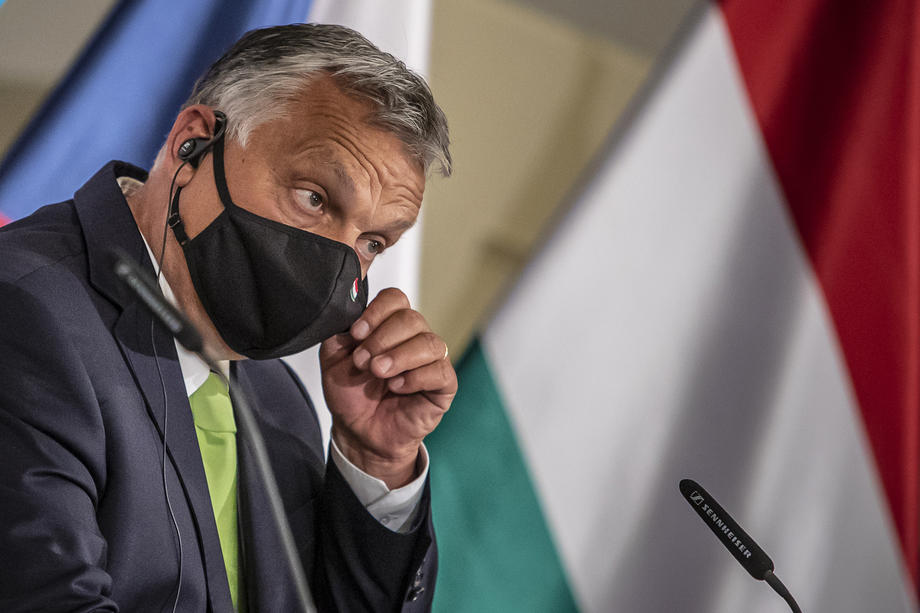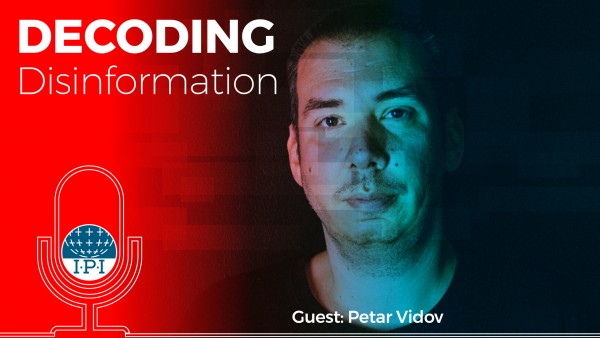This article is part of IPI’s series “Europe media freedom in the shadow of Covid“.
When the coronavirus pandemic hit Hungary in early March, its effects were felt through the country’s entire economy. The already beleaguered Hungarian media sector was particularly badly hit when advertising revenue fell to minuscule levels. This forced many businesses to downsize, cut wages or in many cases, both. The country was lucky enough to survive the first wave of the pandemic relatively unscathed, with the economy projected to contract, depending on the severity of the second wave, by 5-7%, a bad, but manageable number for the larger media companies.
Unfortunately for these companies, Viktor Orbán’s government, having waged a war against them for a decade, has used the pandemic to tighten its grip on independent media. Strictly adhering to the maxim of never letting a good crisis go to waste, Orbán has continued with this campaign. His biggest victory was forcing the entire editorial team of Index.hu, the country’s largest news website to leave, but there were also from smaller ones, like the revoking of the frequency license of Klubrádió, a left-leaning radio station.
This was business as usual. Even with Index, the writing was on the wall for a long time. There were, however, some unexpected challenges to the Hungarian government’s well-oiled media policies. In a period when the public had an unprecedented thirst for news and reliable information, the shortcomings of a propaganda machine honed for a decade became immediately apparent.
“I think they were definitely confused, and they didn’t know how to handle this situation, not just in the media but as a whole”, Ágnes Urbán, the chair of the Infocommunications Department at the Corvinus University of Budapes, explained to IPI. “For a short period it even looked like they had decided to be sincere and truthful, but this passed quickly. I think they realized that it was dangerous for them if facts and numbers just flew around, so they returned to their old habits, curtailing information.”
The complete lack of transparency was most evident in the only official channel of communication for all matters related to the pandemic, a daily press briefing held by the surgeon general, Cecília Müller. Müller limited herself to mind-numbingly long explanations about the proper way to wash hands and other minutiae and repeating the limited information already published on the government’s official coronavirus website. Journalists were quick to corner Müller with some uncomfortable questions, which resulted in the press briefings being moved online, with no live audience. Journalists can only ask questions via email, but those sent by independent outlets are very rarely answered or even mentioned.
These independent outlets, which are almost exclusively online news websites at this point, immediately received a surge in visitor traffic, with still independent Index climbing from approximately 1 million daily visitors to 1.5 million at the height of the first wave of the pandemic. This was obviously not great news to a government set on curtailing independent media’s influence.
“The EU claims that #pressfreedom and fair market competition are among its core values, yet it has so far failed to defend these values in Hungary.”
Now, #Hungary‘s last independent radio faces loss of its license. https://t.co/6YU4uue15R
— IPI – The Global Network for Press Freedom (@globalfreemedia) September 11, 2020
“On the one hand it is definitely true that government-friendly media consumers became more open towards alternative news sources” Urbán explained. “But I think this also worked the other way round, with consumers who have long stopped watching public broadcast television seeking official information through these channels. So overall there was more common ground between the usual media bubbles, because everybody had a big hunger for news. And this really bothered the government, because with more people paying attention to their propaganda outlets, their lies and lack of transparency became more visible. Ideally they would want a solid wall between the two sides, because anybody crossing this, their own voters consuming independent news or their opponents discovering and then criticizing their lies is bad for them”.
Though it is hard to tell if the bursting of media bubbles was the final nail in the coffin for Index, Urbán thinks its demise was more a result of a series of unlucky events than some master plan. But since spring 2020 all Hungarian independent media outlets felt that the screws were being tightened. Government politicians were labelling them as “fake news” almost daily, and Századvég, the government’s premier think tank even set up a “Fake News Monitor” in March to counter the effect that exposure to independent media might have on Hungarians reared on government propaganda. Their website, with articles titled “contrary to fake news, Hungary successfully fights pandemic” ceased operation when warm weather mitigated the effects of the pandemic, around the same time when the surgeon general’s daily press briefings were also put on hold. The latter was revived in early Autumn when the number of coronavirus cases and deaths in Hungary started rising again, and attacks on independent media are also regaining steam.
“Orbán can see that the press poses a serious threat to the governmental popularity via revealing the mistakes in handling the virus”, Péter Krekó, director of Political Capital Institute, a Budapest-based think tank, told IPI. “Orbán was unhappy that due to the pandemic he had to change the agenda and wanted to take back control via combining Covid with his favorite topics. This is why he started to blame Covid on “illegal migrants”, “immigrant countries”, on the West, and open societies. If you want to control the agenda in a crisis period, you have to take a stronger grab. Orbán’s military logic in how he handled the coronavirus was reflected in how he thought about the media: in a war you need a centralized media empire with no dissent.”
Urbán also thinks that after dithering in Spring, the government again has the upper hand in media matters. “Index still has about 700 000 daily visitors, so even though some of their readers left, those with only a superficial interest in news have stayed.” According to Krekó “the attacks against the media fit in the pattern of attacking any institutions that can challenge governmental power: opposition, municipalities, NGOs, etc. Orbán knows that Covid-19 and the subsequent economic crisis poses an unprecedented challenge to his popularity and reelection in 2022, so he does preemptive strikes on the remaining checks and balances. It’s a textbook case of pandemic power grab under the pretext of anti-Covid fight.”
It is still early days in the second, Autumn wave of the pandemic, but it seems very likely that Hungary, which along with most post-Soviet countries was relatively spared in Spring, will face a much deadlier pandemic situation in the next months. This is likely to result in more attacks on independent media.
After Index’s demise, many of the readers looking for alternative news sources chose 24.hu, its largest competitor and the only news website left in Hungary with an editorial team and scope comparable to Index. 24.hu’s numbers are rising since the end of July, when its former journalists left Index, and by September it has become the most visited news site in Hungary by a significant margin.
As a response government-controlled outlets immediately ganged up on its billionaire owner, Zoltán Varga, who took the unusual step of launching an international media campaign, telling Politico that Orbán is “bent on muzzling independent press” and then further criticizing the government in a Bloomberg article where he insisted that he was a “marked man” and “they would like to have definitely a kind of Russia-style controlled media landscape.” It is hard to see Varga winning if he really decides to pick a fight against a Hungarian government already rattled by a pandemic that it rightly sees as an existential threat.




